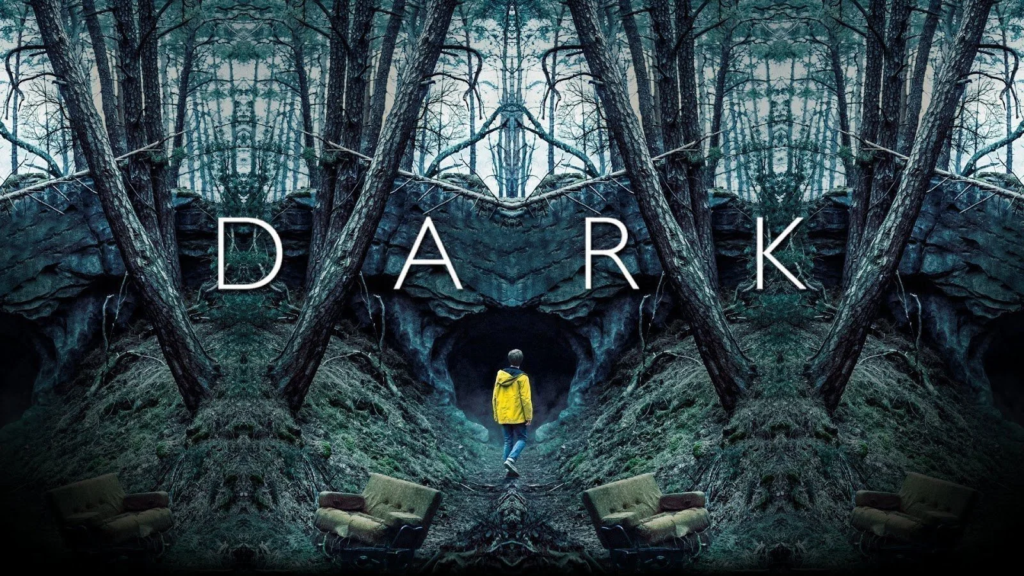A Dizzying Waltz Through Time: Delving into the Profound Depths of Dark

Dark, the critically lauded German science fiction masterpiece on Netflix, shatters the mold of conventional television. It’s a meticulously crafted enigma, a hauntingly beautiful exploration of time travel, the shackles of fate, and the intricate tapestry of human nature. Nestled within the fictional German town of Winden, the series unfolds with the disappearance of a young boy, igniting a chain reaction that exposes a web of interconnected stories stretching across four generations.
Untangling the Knot: A Masterful Narrative Labyrinth
Dark’s narrative structure is its crowning glory. Unlike the traditional linear progression, the story unfolds in a non-chronological manner, seamlessly weaving together threads from the past, present, and future timelines. Each episode throws out tantalizing breadcrumbs of information, hinting at hidden connections and jaw-dropping revelations. Recurring motifs, symbolism, and distinct color palettes further reinforce the intricate tapestry of the narrative. Viewers are constantly challenged to piece together the fragmented timeline, becoming active participants in the process of unraveling the mysteries that shroud Winden.
The Price of Familiarity: Trapped in a Relentless Cycle
The heart of Dark lies in its profound exploration of time travel. It isn’t a glamorous romp through history books; it’s a relentless cycle of cause and effect, a closed loop where characters find themselves trapped in a predetermined fate. The show delves deeply into the philosophical debate of determinism versus free will, forcing us to question whether our actions hold any meaning in the face of a preordained timeline. As the characters desperately attempt to defy their destinies, their choices only serve to solidify the very loop they seek to escape.
Echoes from the Past: The Burdens of Ancestral Scars
Dark transcends the mere mechanics of time travel, delving into the emotional toll it inflicts. The town of Winden is steeped in a tragic past, with each generation grappling with the repercussions of their ancestors’ actions. Unhealed wounds and unresolved conflicts resonate across time, shaping the lives of the present inhabitants. The series explores the cyclical nature of trauma, highlighting how the past continues to haunt the present and future, casting a long shadow on the lives of those who follow.
Beyond Black and White: Morality in the Murky Waters
Dark defies simplistic notions of good and evil. Its characters are complex individuals driven by love, loss, and a desperate yearning to alter the past. We find ourselves empathizing with characters who commit morally ambiguous acts, often driven by a genuine desire to protect their loved ones. The show compels us to question conventional morality and explore the complexities of human decision-making within the constraints of a predetermined timeline.
A Legacy Forged in Loss and Connection: The Power of Human Bonds
Despite the seemingly bleak premise, Dark offers a glimmer of hope. The characters, trapped in a seemingly inescapable loop, find solace and strength in the bonds they forge with each other. Love, friendship, and compassion serve as beacons of light in the face of despair. Ultimately, the series suggests the possibility of redemption, not through altering the past, but by learning from its mistakes and forging stronger connections in the present.
Dark transcends the boundaries of a science fiction series; it’s a profound meditation on the human condition. It challenges viewers to confront existential questions about time, fate, and the power we hold to shape our own destinies. With its intricate narrative labyrinth, captivating characters, and thought-provoking themes, Dark remains a landmark achievement in television, leaving an indelible mark on viewers who dare to venture into its mesmerizing world.




















